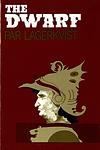The Greatest Arabic, Swedish "Allegorical" Books of All Time
Click to learn how this list is calculated.
This list represents a comprehensive and trusted collection of the greatest books. Developed through a specialized algorithm, it brings together 305 'best of' book lists to form a definitive guide to the world's most acclaimed books. For those interested in how these books are chosen, additional details can be found on the rankings page.
Genres
Allegorical books are a genre of literature that use symbolic characters, events, and settings to convey a deeper meaning or message. These stories often have a moral or philosophical lesson that is meant to be interpreted by the reader. Allegories can be found in many different types of literature, including novels, short stories, and poetry. They are a powerful tool for exploring complex ideas and emotions, and can be used to comment on social, political, or religious issues. Overall, allegorical books are a thought-provoking and engaging genre that challenges readers to think critically and reflect on the world around them.
Countries
Date Range
Reading Statistics
Click the button below to see how many of these books you've read!
Download
If you're interested in downloading this list as a CSV file for use in a spreadsheet application, you can easily do so by clicking the button below. Please note that to ensure a manageable file size and faster download, the CSV will include details for only the first 500 books.
Download-
1. The Dwarf by Par Lagerkvist
"The Dwarf" is a dark, philosophical novel set in the Italian Renaissance, narrated by a malevolent court dwarf who serves a prince. The dwarf is a symbol for the darker side of humanity, embodying all the malice, deceit, and manipulation that one can possess. His actions and viewpoint provide a cynical commentary on human nature and the moral complexities of power, war, and love. The novel explores themes of good and evil, faith and doubt, and the destructive side of human nature.
The 1024th Greatest Book of All Time -
2. The Improvement Of Human Reason (Exhibited In The Life Of Hai Ebn Yokdhan) by Muhammad ibn Abd al-Malik Ibn Tufayl
The book tells the story of Hai Ebn Yokdhan, a self-taught man who grows up on a deserted island, isolated from human society. Through his observations of nature and innate curiosity, he embarks on a journey of intellectual and spiritual discovery. Without guidance from others, he uses reason and empirical evidence to unlock the mysteries of the natural world, the human soul, and the divine. His quest leads him to profound insights about the nature of existence, the pursuit of truth, and the path to enlightenment, demonstrating the power of human reason to transcend the need for external instruction in the quest for knowledge and understanding.
The 4628th Greatest Book of All Time -
3. ḥayy Ibn Yaqẓān by Ibn Tufayl
"ḥayy Ibn Yaqẓān" is a philosophical novel that tells the story of Hayy Ibn Yaqzan, a child who is spontaneously generated on a desert island and raised by a doe. Growing up in isolation from human society, Hayy discovers knowledge through his own observations of nature and through rigorous reasoning. As he matures, he delves into profound inquiries about the nature of the human soul, the existence of God, and the path to true enlightenment. Eventually, he encounters another human being, which leads to a deep exploration of the differences between a life guided by pure reason and one shaped by societal norms and religion. The narrative serves as a meditation on the limits of human understanding and the pursuit of spiritual truth.
The 4695th Greatest Book of All Time -
4. To Damascus by August Strindberg
"To Damascus" is a semi-autobiographical play that follows the spiritual journey of the protagonist, known as the Stranger, who embarks on a quest for meaning and redemption. Struggling with guilt, doubt, and a sense of existential despair, he encounters various symbolic characters, including the Confessor and the Lady, who represent different aspects of his psyche and philosophical challenges. The play delves into themes of faith, suffering, and the search for truth, as the Stranger's pilgrimage reflects the author's own introspective exploration of personal crisis and spiritual awakening. Set against the backdrop of turn-of-the-century Europe, the work is a complex blend of psychological drama and religious allegory, illustrating the profound inner conflicts and transformative experiences of its central figure.
The 7180th Greatest Book of All Time
Reading Statistics
Click the button below to see how many of these books you've read!
Download
If you're interested in downloading this list as a CSV file for use in a spreadsheet application, you can easily do so by clicking the button below. Please note that to ensure a manageable file size and faster download, the CSV will include details for only the first 500 books.
Download


